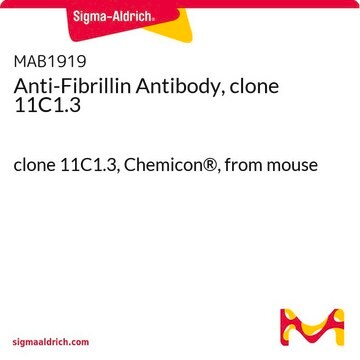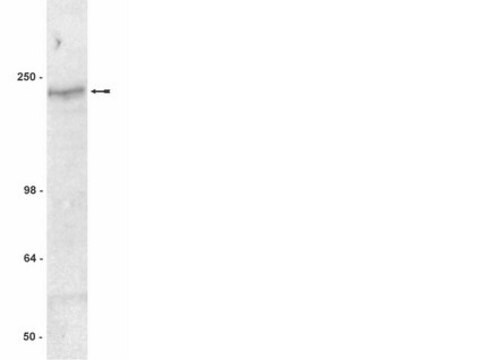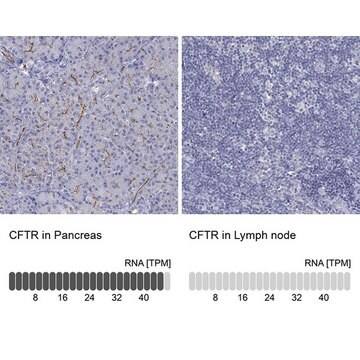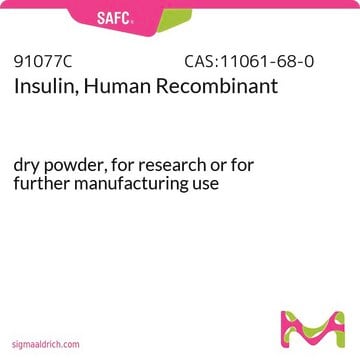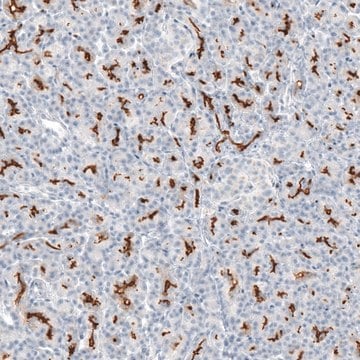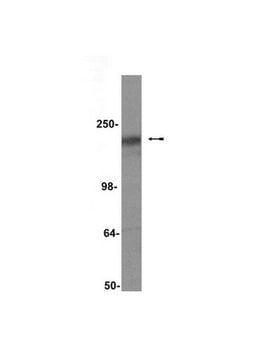MAB3480
Anti-CFTR Antibody, a.a. 1370-1380, clone M3A7
clone M3A7, Chemicon®, from mouse
Sinónimos:
CFTR
About This Item
Productos recomendados
origen biológico
mouse
Nivel de calidad
forma del anticuerpo
purified immunoglobulin
tipo de anticuerpo
primary antibodies
clon
M3A7, monoclonal
reactividad de especies
human
no debe reaccionar con
mouse, shark, rat
fabricante / nombre comercial
Chemicon®
técnicas
immunocytochemistry: suitable
immunoprecipitation (IP): suitable
western blot: suitable
isotipo
IgG1
Nº de acceso NCBI
Nº de acceso UniProt
Condiciones de envío
wet ice
modificación del objetivo postraduccional
unmodified
Información sobre el gen
human ... CFTR(1080)
Descripción general
Cystic Fibrosis (CF) is a common lethal genetic disease caused by mutations of the gene coding for the cystic fibrosis transmembrane conductance factor, a cAMP regulated chloride channel. Approximately 70% of all CF cases share the deletion of a phenylalanine at position 508 (delta F508) which results in abnormal chloride transport. Since the CF mutation is lethal, most often by lung and liver disease, it raises the question of why this genetic disease remains as common as it is. One possible explanation is that Salmonella typhi has been shown to use CFTR to enter intestinal epithelial cells and that delta F508 heterozygote and homozygote mice showed 86% and 100% reductions in S.typhi intestinal submucosal uptake.
Especificidad
Inmunógeno
Aplicación
Neuroscience
Ion Channels & Transporters
Immunoprecipitation
Immunofluorescence
T84 adenocarcinoma cells are a good positive control
Immunohistochemistry: 1-50μg/mL on acetone fixed frozen sections. Does not work on paraffin embedded tissue.
Optimal working dilutions must be determined by the end user.
Descripción de destino
Forma física
Almacenamiento y estabilidad
Nota de análisis
T84 whole cell extract
Otras notas
Información legal
Cláusula de descargo de responsabilidad
Not finding the right product?
Try our Herramienta de selección de productos.
Opcional
Código de clase de almacenamiento
10 - Combustible liquids
Clase de riesgo para el agua (WGK)
WGK 2
Punto de inflamabilidad (°F)
Not applicable
Punto de inflamabilidad (°C)
Not applicable
Certificados de análisis (COA)
Busque Certificados de análisis (COA) introduciendo el número de lote del producto. Los números de lote se encuentran en la etiqueta del producto después de las palabras «Lot» o «Batch»
¿Ya tiene este producto?
Encuentre la documentación para los productos que ha comprado recientemente en la Biblioteca de documentos.
Nuestro equipo de científicos tiene experiencia en todas las áreas de investigación: Ciencias de la vida, Ciencia de los materiales, Síntesis química, Cromatografía, Analítica y muchas otras.
Póngase en contacto con el Servicio técnico
